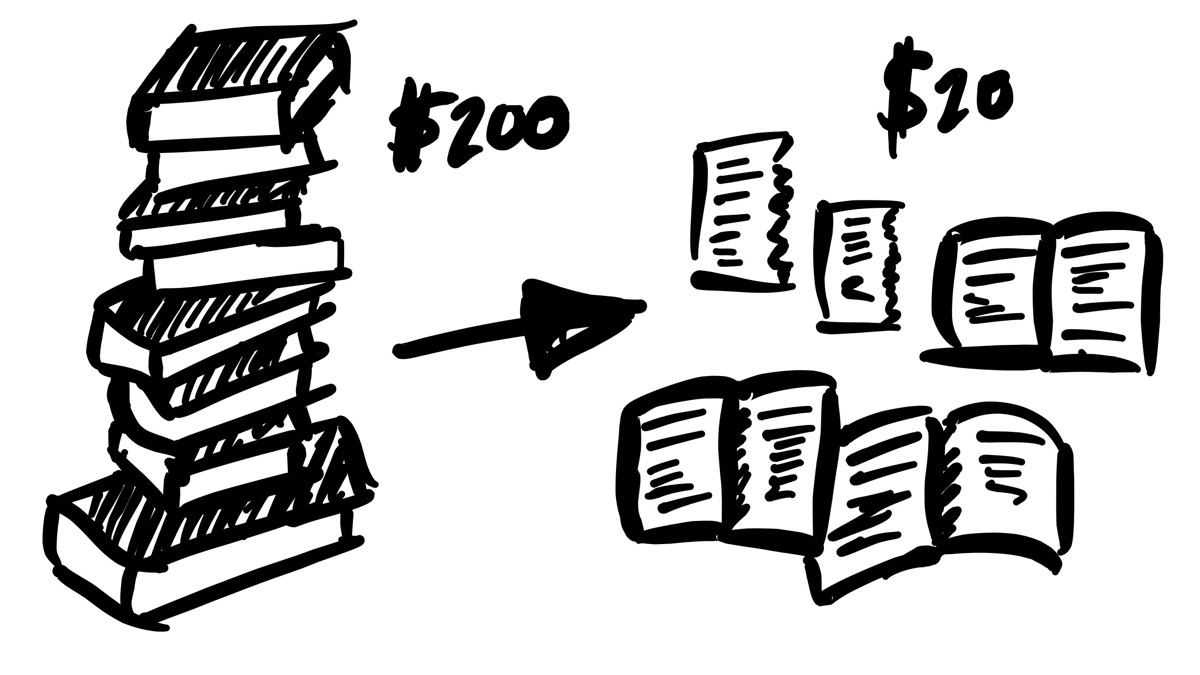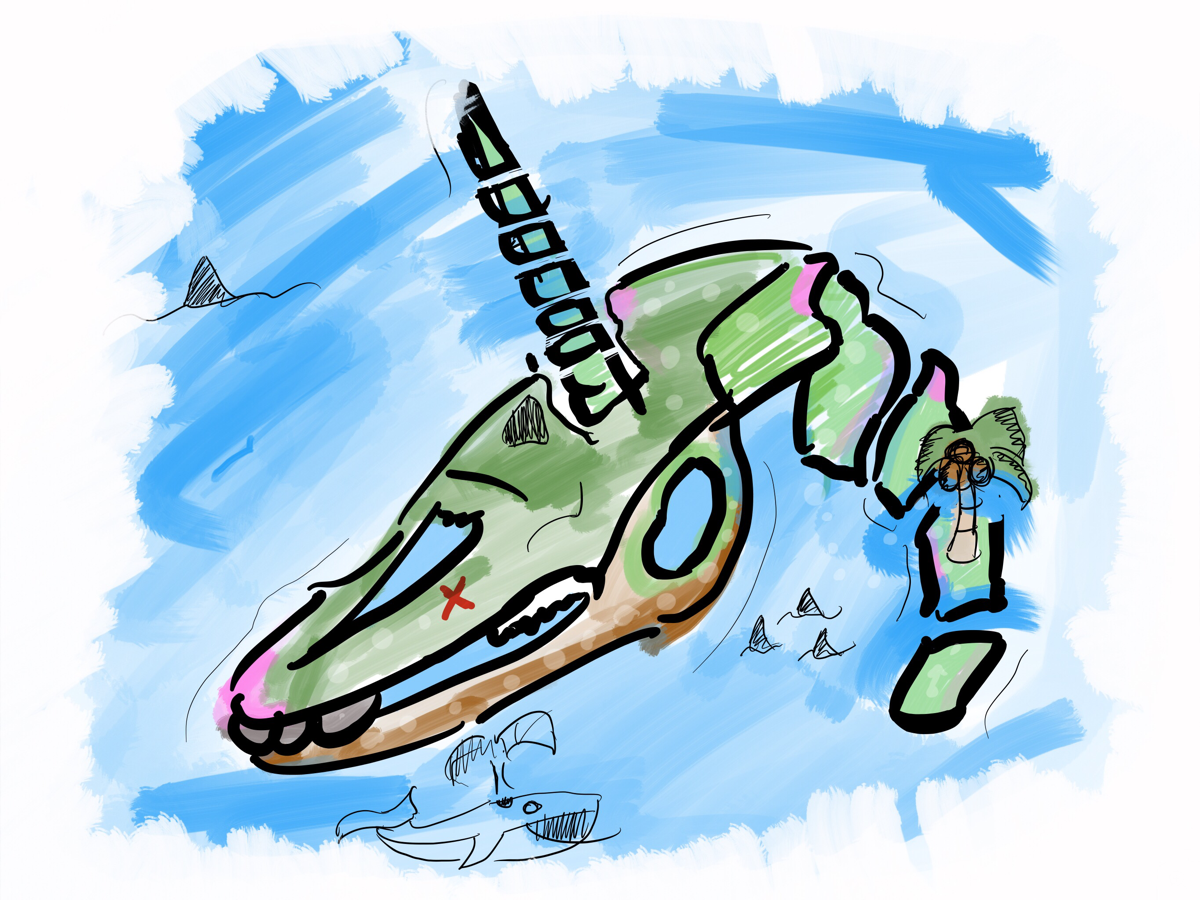Journal 18: The Duel
Welcome to the first edition of this newsletter that I’m actually sending out to subscribers. I was thinking of different names so that it wouldn’t just be called Francis’s Newsletter.
My content has been centered around three things: walking, drawing, and shooting. Maybe I’ll call it The Duel. I can look at the name and remember what’s important.
The duel is against myself. When I walk, I clear my mind by silencing my negative thoughts. When I draw, my pencil battles against forces trying to keep creativity stagnant. When I shoot, I open up a third eye that sees new worlds outside and within.
GRAB YOUR WEAPON… WELCOME TO THE DUEL!!!
I’m gonna go ahead with Francis’s Newsletter.
Treating my blog like a blog
My March experiment will be returning to writing single posts with ideas from multiple books. I’ll move away from writing multiple posts about single books. I think this will get me away from the guilt of a (virtual) pile of unfinished books.
I’m also trying more voice recording. I’ve tried writing strictly with dictation and it never really works out. I can generate a lot of text that nobody wants to read by rambling. I’d never edit it down.
Instead I’ve been using Just Press Record. It’s less stilted than when I dictate because I don’t have to say the punctuation and things like that. It transcribes the audio and what comes out is, well, text without punctuation and things like that.
While the wall of text is useless on its own, talking things out gives me a good sense of what my main point is. Also, timing myself speaking is more effective than timing myself writing. If I set a timer for three or five minutes then I only talk for that amount of time. And I’ll really talk the entire time.
If I set that same timer for writing it could be that I think and then self edit and only have a few sentences by the end of it. I might not have even figured out what I want to say.
Naval Ravikant on reading books like blogs
I’ve been reading through the transcript for Naval Ravikant on the Farnam Street podcast . It’s 46 pages and I’ve gotten through about a quarter of it and am going to listen to the rest. It reminds me of just how much content podcasts have.

Ravikant says he doesn’t really consider books a cost. It’s more of an investment in himself. I have the same approach to books as far as not feeling guilty about buying books. I think it comes from how my parents treated books.
Growing up, I had a weekly allowance but my parents would pay for any book without taking it out of my allowance. On weekend mall trips, I’d always look forward to Waldenbooks. I would go to game stores, book stores, and then the arcade.

Ravikant says he treats books like they’re blogs1. I like his comparison to blog archives. You wouldn’t just read an archive from start to finish. You would look and try to find the most interesting posts. In the same way, he goes through books and reads the most interesting sections.
Ravikant estimates that he reads about $20 of every $200 of book purchases. I’m at around $120 of every $200 of book purchases. There are good and bad things going either way. My percentage read is higher but I bet his totals are much higher. I might be reading a lot of things that aren’t all that valuable.
He calls out the societal idea that we need to finish reading books from start to end. If I’m reading nonfiction from cover to cover, I could probably afford to skip around more. If the table of contents looks like a blog archive, I should consider skipping through different parts of it rather than treating it like a novel.
Unless it’s a Michael Lewis book. He maintains a single deep narrative with lessons woven throughout. It’d be great if he weren’t the exception and more books were like his.
Instead, I’ll try skipping when I come upon the seventeenth person’s interpretation of the marshmallow study.
A map from the gist

Ravikant treats books like they’re blogs—I’m gonna try treating my next few audiobooks like they’re podcasts. I’ll jump around or skip forward if the chapter isn’t interesting.
I tried this with The 12-Week Year and was able to get the gist of the book on my first listen. One advantage of listening this way is being able to see all the connections between ideas. One disadvantage is I got the gist and only the gist. I’ll have to re-listen to understand it deeper.
The book in three sentences (took this idea from James Clear): Make 12 week plans instead of annual plans. Execute on your weekly plan. Score each week.
I liked the emphasis on trusting your weekly plan. You don’t want to create plans from scratch every week or else your weekly plan will always look like a list of urgent things. Not all of them are important for long term goals.
This is something I fall into. I don’t look at my monthly or yearly plans often enough. My weekly planning often resembles how I used to do daily planning: I move all my unfinished things from last week into this week.
Here’s a very rough 12-week plan for this blog.
- Big goal: get to my first 1,000 subscribers: I want to double the number of mailing list subscribers each week. That would get me to 2048—which seems entirely out of reach right now. So I’ll try for 1,000.
That’s measurable. So then grouping a few of the weeks.
- Weeks 1 to 4: 8 posts, 10 subscribers — Redesign the front page and single posts.
- Weeks 5 to 8: 16 posts, 100 subscribers — Start sharing content on Instagram and Pinterest.
- Weeks 9 to 12: 32 posts, 1000 subscribers — Write an eBook with links to a mailing list sign-up on every other page.
That last one is a joke, god I hate when I see that. I don’t have a weekly plan yet but I do have one idea in mind.
- Every week: Share a post with one person I haven’t shared content with before.
Oh yeah, and a lot of reviewers say that the book ignores the fact that companies already plan this way and they’re called quarters. The Quarter Year isn’t as catchy. I liked some of the ideas in the book so I’ll give it a re-listen.
Trevor Noah on using language to fit in

I finished listening to Born a Crime a couple weeks ago. If you want to get into audiobooks it’s probably good to start with a comedian you enjoy who narrates his own book. This has never failed me.
A lot of what Trevor Noah talks about in Born a Crime revolves around language. One of the themes is how knowing so many different languages helped him in many situations. He says it’s one of the quickest ways to connect with another person. It also depends on the context.
He says that growing up he wasn’t a popular kid and he wasn’t an outcast. She could be a part of any group as long as they laughed together. He could drop by, tell a few jokes and then leave before wearing out his welcome.
In this way he described himself as a chameleon.
This concept of using language to fit in is really powerful. It’s also important to know some of the pitfalls that can happen. If you try to fit in using someone else’s language then it becomes very apparent if you fumble something. In a way it could be worse than not knowing the language at all.
Language doesn’t have to be foreign language either. If you work in some specialization you’re probably speaking a certain language. Slang or jargon you use day-to-day is part of some kind subsection of language.
If you’re trying to fit in and you say oh man I can’t wait for this football match, hopefully you’re in Europe and not a Steelers bar.
- This is great because with the rise of self-publishing, a lot of people are treating their blogs like they’re books. Nothing like a mailing list link in the introduction to make you more aware that you’re somewhere in their cross channel marketing funnel. ↩
